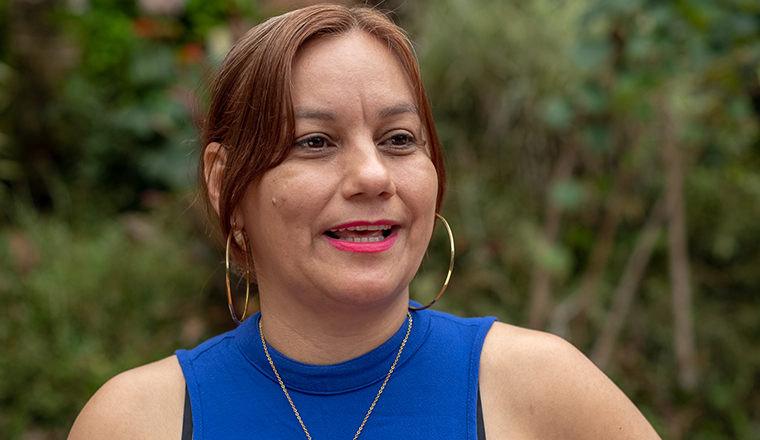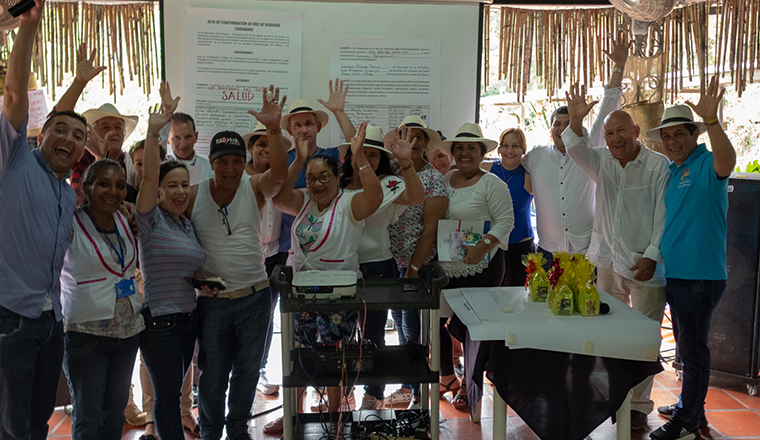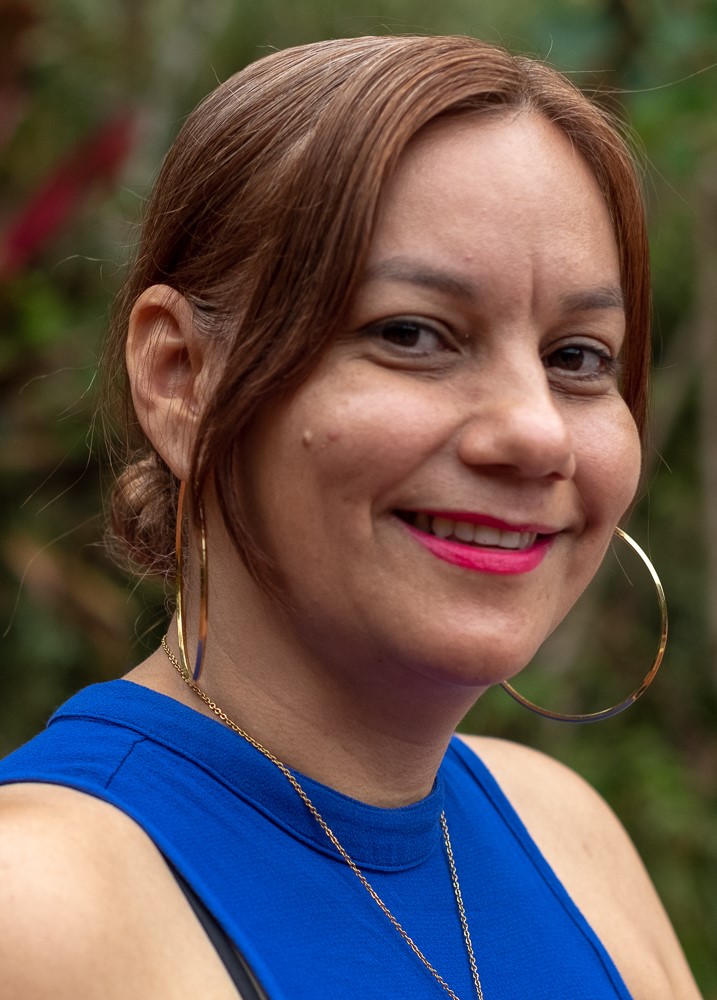For Aracely Garzón, becoming an active women’s leader in her local village was as much a need to fill a necessary role, as it was a means to address the patriarchal culture she was raised in.
Garzón grew up in Cartagena del Chairá, Caquetá, in a territory rife with illicit activities and conflict during the decades where the FARC guerilla ruled the land. Her family moved away after her father was killed by FARC. She didn’t return until after the birth of her first daughter sixteen years later.
 Aracely Garzón, leader of Mujeres Veedoras de Citas Chairenses (MUVECICH).
Aracely Garzón, leader of Mujeres Veedoras de Citas Chairenses (MUVECICH).
Back in Caquetá she worried about women’s rights, especially those living in rural areas. Seeing this problem, Aracely was inspired to take action and become an active women’s leader. Through her activities, she learned about the USAID Regional Governance Activity (RGA), which invited her to join the Municipal Committee for Women and Gender.
To encourage greater civil involvement, the project works with communities to form, train and strengthen citizen oversight groups. These groups perform social audits for public projects on health, education, public services and infrastructure.
The Municipal Committee reached out to RGA because they wanted to form an oversight group to monitor the medical appointments’ scheduling in the Sor Teresa Adele Hospital in mid-2017. Aracely took the lead and formed the Mujeres Veedoras de Citas Chairenses (Women Overseeing Appointments in Cartagena del Chairá, or MUVECICH) oversight group with four other women.
 Aracely Garzón along with members of the oversight group.
Aracely Garzón along with members of the oversight group.
MUVECICH also trained groups of women on leadership, entrepreneurship, prevention of gender-based violence and the importance of oversight groups, especially related to social projects for women.
The RGA project has succeeded in helping to train and form 186 oversight groups all over the country, 16 of these in Aracely’s Caquetá. The groups help participants understand the importance of social oversight as a tool to fight against corruption, ensure transparency and demand public goods and services. To date, more than 1,680 people have received training in USAID’s Let’s Exercise Citizen Control methodology, including 980 women.

“Through RGA, we have learned a lot,” says Aracely. “We learned that there is no need to attack government entities, but to work with them; that we [citizens] are a bridge and [development] is a two-way job. They support us and we support them because we all work for the common good. Through RGA support, we learned that we did not need much money but just the will to do something.”